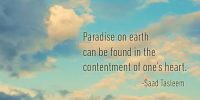Islamic help
So my situation some might relate to. I am a female, 18 and i do have a happy family. I really wish i can be islamic and find a right path. My parents and the mosque i attend just force us to pray and make islam so “boring and make it stressful” Whenever i ask a real question they dodge it and just confuse me more. Islam always talks about men before women and i feel like we look down upon. Im not a feminist but just talking about islam in general. It has things like if you don’t listen to your husbands needs (pleasure) you get cursed by angels. Don’t get me wrong we have respect but there is also so much to it. Prayer is also something i lack on since i dont get correct info about it. I need a will or reason to do it. Yeah it makes god happy but i just dont have another good valid reason. I hate when i talk like this but my community just makes all of us teens feel this way. I really wish someone answers and helps me with a few things. Islam isn’t that complicated i guess but all my community does is force us to do stuff.
Assalaamu Alaikum Sister,
I want to start my response with the acknowledgement that I am not an Islamic Scholar in any capacity and these are all my own views and perspectives. With that said, I begin in the name of Allah, if anything I say is beneficial then it is from Allah, and if anything I say is not beneficial then I ask Him to forgive me and to guide us to the right path, Ameen.
A large part of my training taught me how to see problems within context(s). A person’s well-being requires not only maintenance of physical health, but also the maintenance of relational, emotional, psychological, and spiritual health. And when I work with clients, I do my best to check in with all of these aspects of their lives. Alhamdulillah you mentioned you have a happy family. This provides you the foundation to be able to focus on higher level aspects of your life such as your spiritual and community needs. I am so glad you are thinking about these things. In fact Allah (swt) encourages us to ask questions and seek knowledge about Islam. And Islam is just complicated enough to match the complexity of our lives. If your finding that the answers you are receiving are not satisfactory than do your research. First and foremost, always start your search with Allah’s guidance. I have found when I am confused or concerned in my own life, my search for answers never fails when I ask Allah for guidance towards the best source of knowledge. Find a person whose Islamic knowledge, relationship with Allah, way of life and world view you can appreciate or feels right to you. Seek their advice and start your journey of knowledge. It is each of our responsibilities to seek knowledge so that we can worship Allah to the best of our ability. Alhamdulillah, we have more access to Islamic scholars books, videos, online courses, podcasts etc. than ever before. Again, make dua and access to beneficial knowledge will not be far. As Allah told us, all you have to do is walk towards Him and He will run towards you.
With that said, I hope I can provide you some context for some of your concerns and very valid points. When we seek knowledge always think about the source and context it is coming from. That is why it is so important to learn about the seerah of the Prophet Mohammad (S) because it provides the historical and social context of our religion. The society from which our beloved Prophet came was headed and ruled by men. Therefore, Allah spoke to them in the language they would understand, and I am not just referring to the Arabic language. It was also from a perspective that the ruling and leading members of society could absorb. The message itself was so incredibly radical at that time, not only did Islam require them give up the polytheism of their forefathers, but it dismantled their entire economic and social system. They could no longer sell idols to sustain their wealth, could no longer bury their daughters alive to maintain male dominance and power in their tribes, and eventually abolished slavery. If the message, language, perspective was any more radical than it already was, the people of that time would not be able to hear it…it would be laughed off as more ridiculous than many thought it already was. Islam was so incredibly life shattering for so many Sahabah. It brought them ridicule, torture, broke apart families, and forced people to immigrate from their homelands, which is what often happened to people who embraced new ideas that created social change. This is also why the Sahabah had to be some of the strongest and most noble people in the history of Islam, otherwise, this religion would not have survived.
The historical and social contexts also allow us to extract Islamic values. Our understanding of the value of women, for example, comes from the story of Khadija being one of the most wealthy and powerful business woman of the Prophet’s time; and the story of Ayesha who not only enjoyed her time playing with the prophet but who was jealous, emotional, had strong opinions and was also a leader of the Ummah. The Prophet himself gave importance to all these parts of her. He helped his wives raise children, do housework, and he even mended his own socks. If all this is true then why do we only focus on the parts of the religion that seem to benefit and cater to men? Again, it’s important to look at context. I am not even going to go into all of the historical and political contexts that went into the evolution of our religion after the time of the Prophet (S), but I will offer one example.
Most Muslim majority countries have functioned on patriarchal systems for centuries before the introduction of Islam. Because Islam allows people to maintain their cultures to a certain degree, overtime Islamic edicts and cultural values became intertwined as one. So much so that people did not even decipher between the two. Moreover, for most of our parents who came from Muslim majority countries, Islam was just a part of their larger culture, what everybody did, and was taken for granted. Many 2nd generation American youth actually became knowledgeable about Islam simply because we wanted to prove to our parents that Allah (swt) didn’t say we had to get married only to people from our village back home, or that we were obligated to live a life in servitude of our husbands. We wanted to understand the religion for ourselves so that we could not only justify our inevitable integration into American society, but also have the ability to explain our religion to those who challenged it. Nevertheless, if the leaders of our masjids and communities are men who come from patriarchal cultures and understand Islam through that perspective, then that will be the only perspective of Islam that we will hear about. It’s not necessarily wrong, but it is just one perspective. Alhamdulillah there are a growing number of women and pro-women scholars who are also aware of the nuances and complexities of the lives of women. And if the Prophet Mohammad (s), was so concerned about the rights and well-being of women during his time, shouldn’t we also be concerned about our rights and well-being during our times?
Keeping in mind our own context is also important. Our lives, our cultures, our experiences are different from the experiences of the people in the time of the Prophet. That is exactly why there is flexibility in our faith and permission for Scholars to issue fatwa’s that are culturally appropriate. If Islam was not flexible or did not take into consideration the various lives and experiences of Muslims all over the world, our religion would not have survived and would not have spread so widely. Look at all the different ways Islam is expressed from country to country. As long as we are still adhering to the fundamental aspects of Islam we can practice Islam in the way that best fits our lives and cultures. But how do we know which aspects of Islam are flexible and which aspects are fundamental to the faith? That’s where the research and learning comes in. That’s where dua’s for Allah’s guidance comes in. Our world is constantly changing, and now more quickly than ever before. If our scholarship, and our implementation of Islam is not keeping up I worry for the future generations and the sustainability of their faith.
The last thing I will leave you with, I believe, is the most important. In addition to learning about, rules, cultures, contexts etc, the most important and the first thing we need to do as Muslims is establish our relationship and love for Allah (swt). Nobody understands us better than our Creator Himself. If you look at the way the Qur’an was sent down to the first Muslims, you will find that the first surahs had the function of bringing the hearts of the people close to Allah, to know Him and to love Him. Only after their hearts were connected to Allah did the later Madani surahs pertain to rules and regulations for peoples lives. If your prayers are not important to you than look at your relationship with Allah, develop that, get to know Him, love Him, and your love for salah will follow. You will find that salah is a way to connect and communicate with Him. It is a way to center and prioritize your life, and it is a source or relief and comfort. Harvard University studies have shown that even as little as 10 minutes a day in a meditative state (aka the khushoo’ you develop in salah) increases brain density in the pre-frontal cortex which is responsible for your focus, self-control, judgement, emotional regulation and decision-making skills. All the things we need to lead a successful life. And remember, Allah does not need our salah, we need it, we need Him.
Unfortunately, we are lacking in the community avenues to help bring the hearts of our youth closer to Allah, closer to Islam, and closer to the community. But our failings do not have to be your limitations. Create and lead youth groups, be there for each other, have fun together, get into community service activities and find a mentor that will help and guide you. Most importantly make lots of Dua’a to Allah, keep learning and stay inquisitive. May Allah guide us to righteousness, beneficial knowledge and help us improve our community systems so that our hearts remain close with each other and with Allah (swt).
Your Sister in Islam,
“Fatima AH”
Disclaimer: If this is an emergency, please call 911 or 1-800-273-TALK(8255). The information that appears here is not meant as replacement for proper care from a mental health provider. Click here to read our full Disclaimer.




